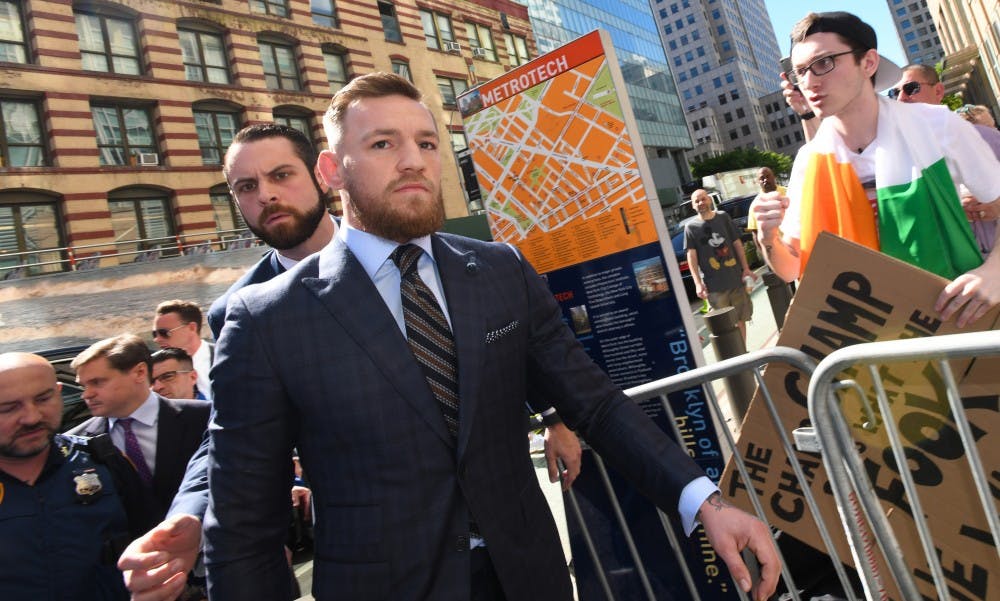Conor McGregor is back in the spotlight after his submission loss to Khabib Nurmagomedov, a Dagestani fighter from Russia. The post-fight brawl that broke out in the audience, however, was the event that really captured headlines after Nurmagomedov leapt over the ring and attacked McGregor’s trainer. The entire end to the fight really is a good metaphor for McGregor’s public life, being that it took what should have been a good show and brought down any sense of class or decency.
McGregor’s image is invariably wrapped up in his heritage as an Irishman. Not only does he have the accent and stereotypical brash attitude of someone from Ireland, his shock of red hair and full beard complete his look. Of course, this image invokes another stereotype of the “Fighting Irish,” as though being born on some island the size of Indiana off the west coast of Europe makes one predisposed to fighting. Although Ireland does have its share of violent crime, its crime rate is still lower than the United States. Honestly, making light of that kind of outdated misconception for advancing one’s career seems rather low.
The worst way McGregor embodies the fighting Irish is the way he uses the stereotype to excuse his belligerent behavior. The most recent example of this is when he offered whiskey to Nurmagomedov at a press conference before their fight, which the practicing Muslim denied. Instead of simply taking the whiskey away, McGregor mocked the Dagestani and made himself look like an absolute jerk.
This was only the latest in a series of PR blunders that reflected poorly on Ireland. McGregor was arrested by the NYPD after attacking a bus full of rival fighters with a trashcan and dolly. When I was studying abroad last fall in Dublin, I remember a period of around two weeks in which the fighter was notorious for starting bar fights and insulting strangers. This forced some pubs to institute a “No Conor McGregor” policy to protect their establishments. Supposedly during that same time, McGregor got into a fight with a member of the Irish Mob, who in turn put a huge price on his head and threatened his life.
Poor decision making aside, the most laughable part of the fighter’s public image is how he supposedly grew up on the bad side of the tracks and had to fight just for survival. McGregor was born in Crumlin, a neighborhood on the south side of Dublin. Incidentally, Crumlin is not far from where I lived when I studied abroad in Dublin in the fall of 2017, and I can personally verify that it is not as bad as the announcers at ESPN would want you to believe. I’m not going to pretend to know the circumstances of McGregor’s upbringing, but it seems wrong to compare Crumlin to somewhere like Baltimore or Detroit.
Of course, it seems obvious that most of this talk about McGregor’s childhood is mainly done by promoters to enhance his image, but even these exaggerations are not helping one of Ireland’s biggest industries: tourism. Would you want to visit Dublin after you only hear about how some fighter grew up in its worst side, which was rife with shootings and drug wars?
If you are the kind of person that only knows about Ireland from Conor McGregor and St. Patrick’s Day, try to make yourself immune to his big talk and dumb actions. As someone who lived in Dublin for close to four months, I can personally verify that the Irish are some of the most down-to-earth and friendly people I have ever met. Even the ones from Crumlin.

